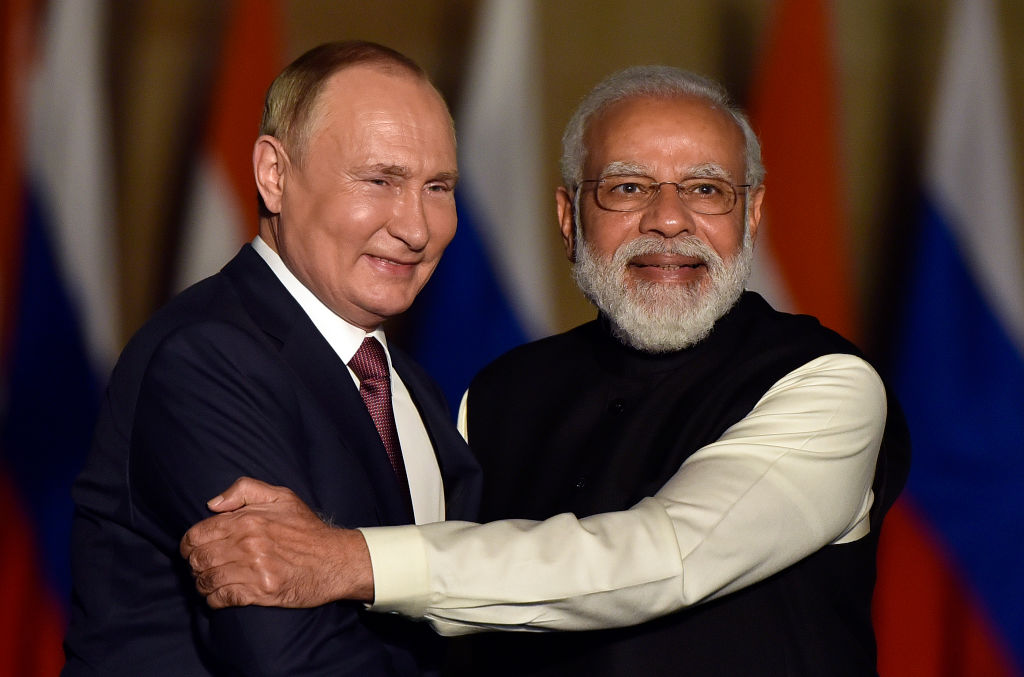Russian invasion of Ukraine raises dilemmas for Middle East and India

The Ukraine crisis has confronted three Middle Eastern countries—Turkey, Israel and Iran—as well as India, with serious policy quandaries. For different reasons, they face the conundrum of how to strike a balance between opposing Russia’s aggression against the sovereign state of Ukraine and maintaining good relations with Moscow. So far, they have walked a tightrope, but now with Russia’s invasion in full swing they need to show their hands more clearly.
Turkish President Recep Tayyip Erdogan, whose country is a member of NATO, has built a good working relationship with Russian President Vladimir Putin over the last few years despite their differences in Syria and past stoushes. He has tilted towards Moscow to counter what he perceives as America’s and Western Europe’s unfavourable treatment of him, especially in the wake of the failed 2016 coup against him and his harsh crackdown on the opposition. He has purchased Russian S-400 surface-to-air missiles to the annoyance of the United States, which in turn has dropped Turkey from its F-35 fighter jet program.
Meanwhile, Erdogan has maintained good relations with Ukraine and strongly supported the sovereignty and territorial integrity of the country. In the lead-up to the Russian invasion, he called for a diplomatic resolution of the crisis and avoided any direct criticism of Russia. Now, however, he needs to decide whether to side with Turkey’s NATO partners or take an independent course that could further aggrieve those partners.
Putin’s actions have also placed Israel in a difficult position. It is concerned about Russian aggression and has good relations with Ukraine, whose president is Jewish. But it has been careful not to antagonise Moscow. Putin has stood by Israel despite the Jewish state’s brutal treatment of the Palestinians under occupation. Yet, he has also politically and militarily backed the Syrian regime of Bashar al-Assad in a de facto alliance with Iran, which Israel regards as an arch regional enemy. Israel needs Moscow’s understanding for hitting the Iranian forces and those of the Iran-allied Lebanese Hezbollah in Syria.
Although Moscow has occasionally been critical of Israel for violating Syrian sovereignty and air space when regularly bombing Iranian and Hezbollah sites, it has been reluctant to take on Israel as long its missions have not caused any problems for Russia on the ground. Israel would like to see this status quo maintained.
Iran has backed Russia’s Ukraine adventure, as expected given Tehran’s dependence on Moscow for weapon supplies and coordinated actions in Syria. Beyond this, Tehran needs Moscow’s support in the ongoing negotiations in Vienna on reviving the multilateral 2015 Iran nuclear agreement, which US President Donald Trump rescinded in 2018 and his successor Joe Biden wants to rejuvenate.
This doesn’t mean that Tehran is very trustful of Russia; to the contrary, the two countries have had bitter moments in their historical relations. But Tehran sees benefits in not being critical of Moscow over Ukraine. Yet, in the process it risks provoking American displeasure at the nuclear talks, unless it changes its position from indirect to direct dialogue with the US.
India has found itself in a very awkward foreign policy situation. Prime Minister Narendra Modi’s right-wing Hindu government has developed close relations with Washington, leading India to join the US, Japan and Australia in the Quad alliance, which is broadly viewed as an anti-China measure. However, New Delhi also has very close defence cooperation with Russia, which is a major weapons supplier to India. Primarily for this reason, Modi has so far adopted a position similar to that of Erdogan on the Ukraine conflict—essentially avoiding taking sides, though in a phone call with Putin he did appeal for an ‘immediate cessation of violence’.
Modi is under increasing pressure, at least indirectly, from the other Quad members, which have strongly condemned Russia’s actions and imposed sanctions on the county. Now, in the wake of the Russian invasion, New Delhi is further pressed to adopt a clearer posture. If it tries to please Moscow, India is likely to be viewed as a very weak link in the Quad, and if it adopts the Quad’s position, it will likely risk relations with Russia.
The Ukraine crisis is indeed globally multidimensional. While it has proven to be quite straightforward for most Western countries to oppose Russia, the same cannot be said for those states that find themselves caught between the West and Russia.